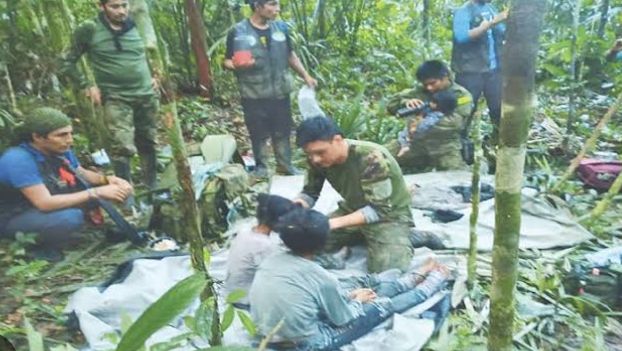
In the heart of the Colombian jungle, the nation received a long-awaited message on Friday night. The news on the Army radios declaring that four missing children were found alive after 40 days is nothing short of a miracle. The children, all belonging to the indigenous Huitoto people, had vanished. This incident occurred when the plane they were on crashed into the Amazon on May 1. Tragically, their mother perished in the accident, leaving the children, aged 13, nine, four, and one, stranded. It happened amidst a dangerous environment inhabited by snakes, jaguars, and mosquitos.
Initially, rescuers feared the worst, but footprints, partially eaten wild fruit, and other clues provided hope that the four missing children were alive. The children had survived and ventured away from the crash site in search of help. They defied the odds over the following six weeks and battled the elements. President Gustavo Petro describes it as an extraordinary tale of resilience that the indigenes will etch in their history.
The Mucutuy family, to which the children belonged, had prepared them well for such adversity. Apparently, in Huitoto culture, they learn the skills of hunting, fishing, and gathering from an early age. Fidencio Valencia, the children’s grandfather, revealed that the eldest siblings, Lesly and Soleiny, know the jungle well. The children’s aunt, Damarys Mucutuy, shared that the family often played survival games during their upbringing. She said that they set up miniature camps, among other things. Hence, the thirteen-year-old Lesly knew which fruits were poisonous and how to care for a baby.
Following the crash, Lesly demonstrated resourcefulness by constructing makeshift shelters using branches and her hair ties. She also salvaged faria, a type of cassava flour, from the wreckage of the Cessna 206 plane they had been traveling in.
From the children’s survival journey, what particular aspects inspire you the most and why?
In challenging circumstances like this, how crucial do you consider cultural knowledge and traditional skills in improving one’s chances of survival?




